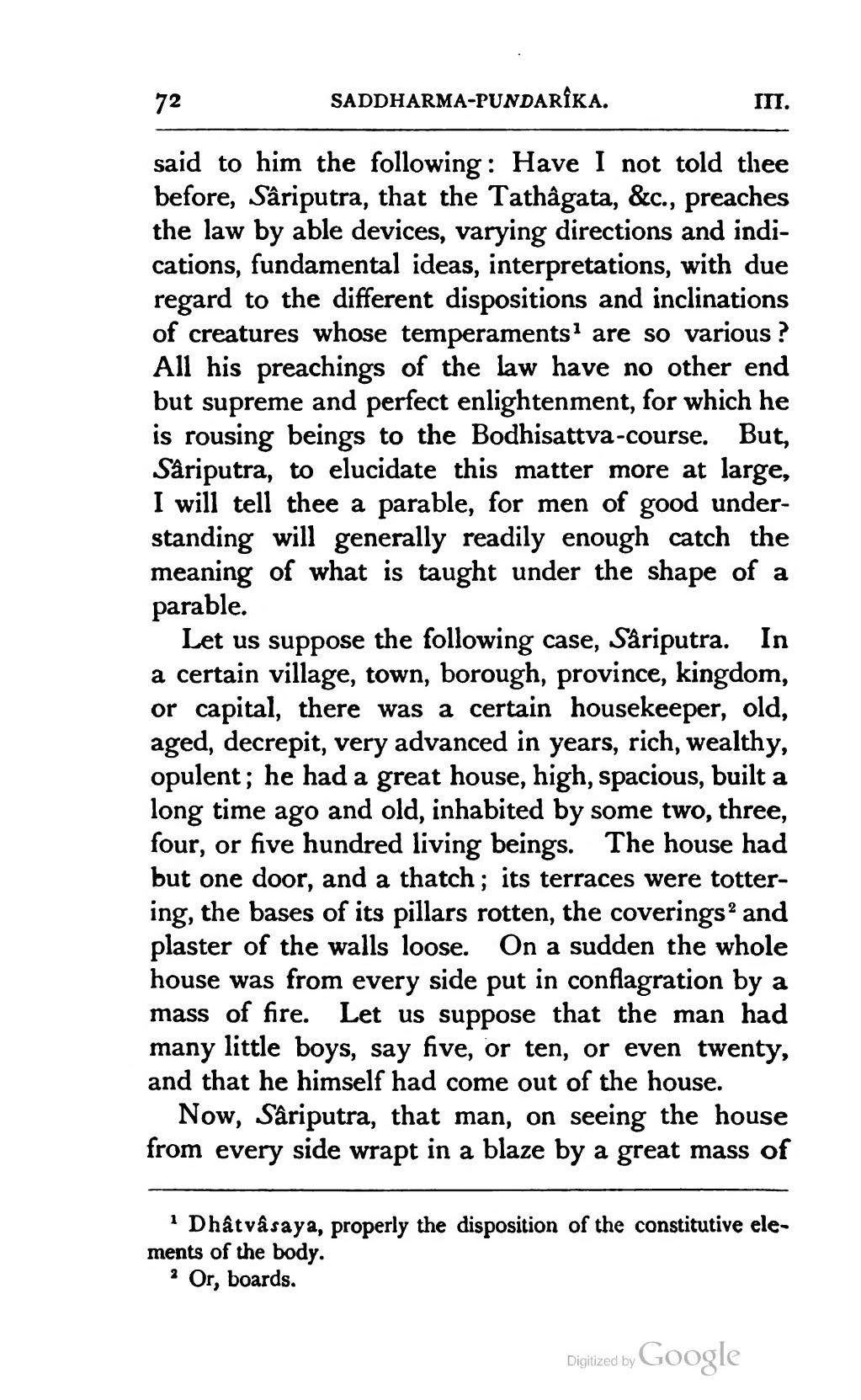said to him the following: Have I not told thee before, Sâriputra, that the Tathâgata, &c., preaches the law by able devices, varying directions and indications, fundamental ideas, interpretations, with due regard to the different dispositions and inclinations of creatures whose temperaments[1] are so various? All his preachings of the law have no other end but supreme and perfect enlightenment, for which he is rousing beings to the Bodhisattva-course. But, Sâriputra, to elucidate this matter more at large, I will tell thee a parable, for men of good understanding will generally readily enough catch the meaning of what is taught under the shape of a parable.
Let us suppose the following case, Sâriputra. In a certain village, town, borough, province, kingdom, or capital, there was a certain housekeeper, old, aged, decrepit, very advanced in years, rich, wealthy, opulent; he had a great house, high, spacious, built a long time ago and old, inhabited by some two, three, four, or five hundred living beings. The house had but one door, and a thatch; its terraces were tottering, the bases of its pillars rotten, the coverings[2] and plaster of the walls loose. On a sudden the whole house was from every side put in conflagration by a mass of fire. Let us suppose that the man had many little boys, say five, or ten, or even twenty, and that he himself had come out of the house.
Now, Sâriputra, that man, on seeing the house from every side wrapt in a blaze by a great mass of
